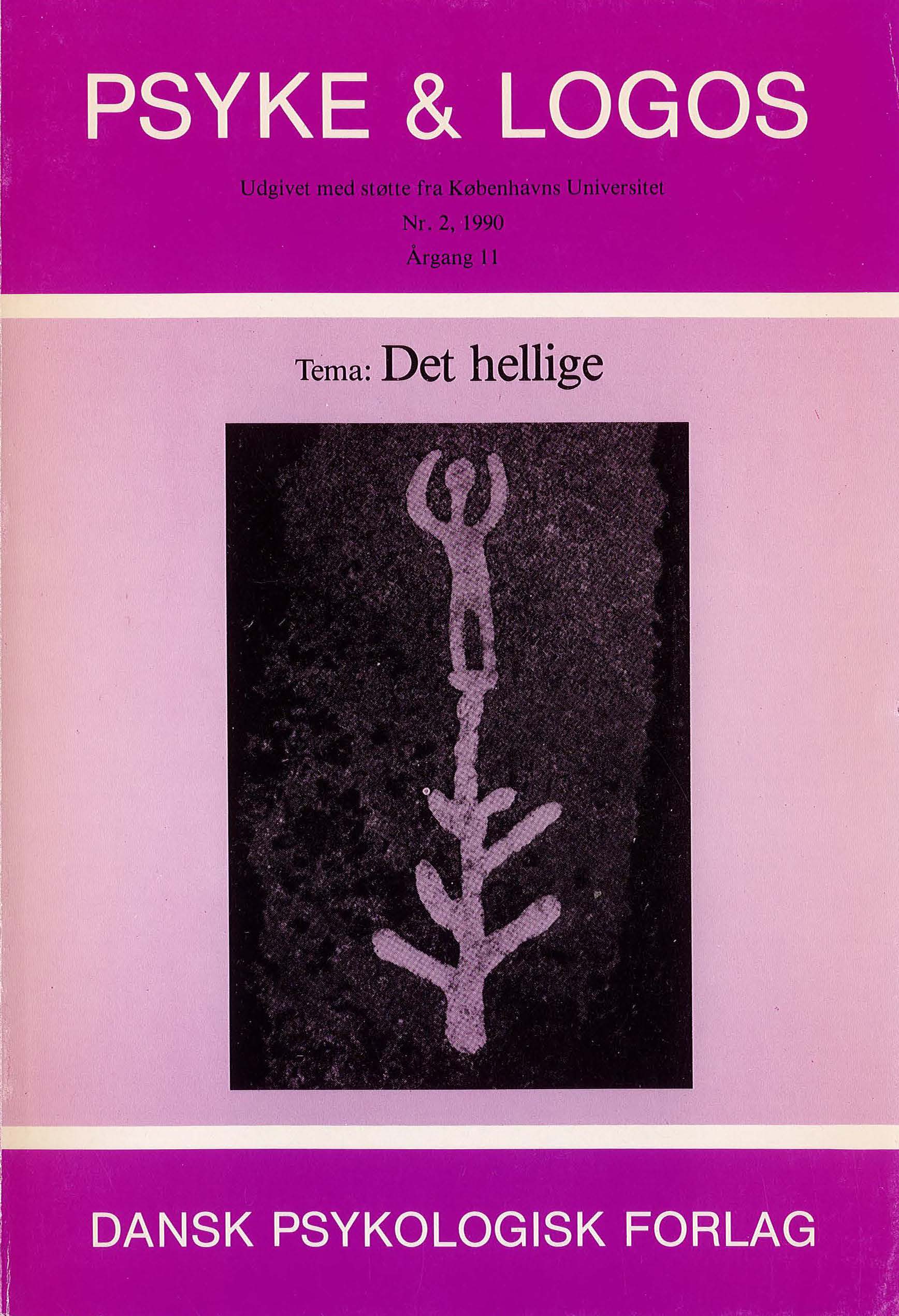Om det hellige i arkaiske og i moderne samfund
DOI:
https://doi.org/10.7146/pl.v11i2.135342Resumé
Primært med udgangspunkt i R. Otto og M. Eliade præsenteres en fænomenologisk forståelsesmåde af menneskers forhold til det hellige, for at der dermed kan lægges op til en psykologisk belysning af dette eksistentielt centrale tema uden at det reduceres til psykologi. For at vise at menneskers forhold til det hellige heller ikke kan tilbageføres til en afgrænset udviklingsfase i den kulturelle og materielle historie argumenteres derfor, hvordan det hellige viser sig på basalt den samme måde under både arkaiske og moderne livsomstændigheder: Når det hellige viser sig i og med en bestemt situation i den almindelige, opsplittede og flygtige livsverden, er dette ensbetydende med, at der intuitivt åbenbarer sig en helt anderledes, en helstøbt og egentlig virkelighed, hvad der videre indebærer, at livsverdenen får mening, værdi og intensitet. Når mennesket deltager i de erkendelsesaktiviteter, som er typiske for arkaiske kulturer (kultisk-mytisk erkendelse) og for moderne kulturer (f.eks. videnskabelig og kunstnerisk erkendelse) kommer - den samme menneskelige stræben til syne: At fastholde og uddybe den erfaring, at det egentligt virkelige er tii d. v.s. at erfare det hellige med eksistensmodus, og at udpege og navngive, hvad der er den egentlige virkelighed, d. v.s. at erfare det hellige med essensmodus.
Downloads
Publiceret
Citation/Eksport
Nummer
Sektion
Licens
Ophavsret er tidsskriftets og forfatternes. Det er gældende praksis, at artikler publiceret i Psyke & Logos, som efterfølgende oversættes til andet sprog, af forfatteren frit kan publiceres i internationale tidsskrifter, dog således at det ved reference fremgår, at den oversatte artikel har et forlæg i en dansksproget version i Psyke & Logos. Artikler kan frit deles og linkes til på forsknings- og undervisningsnetværk (så som Blackboard). Link foretrækkes, fordi det giver oplysning om brug af tidsskriftets artikler.




